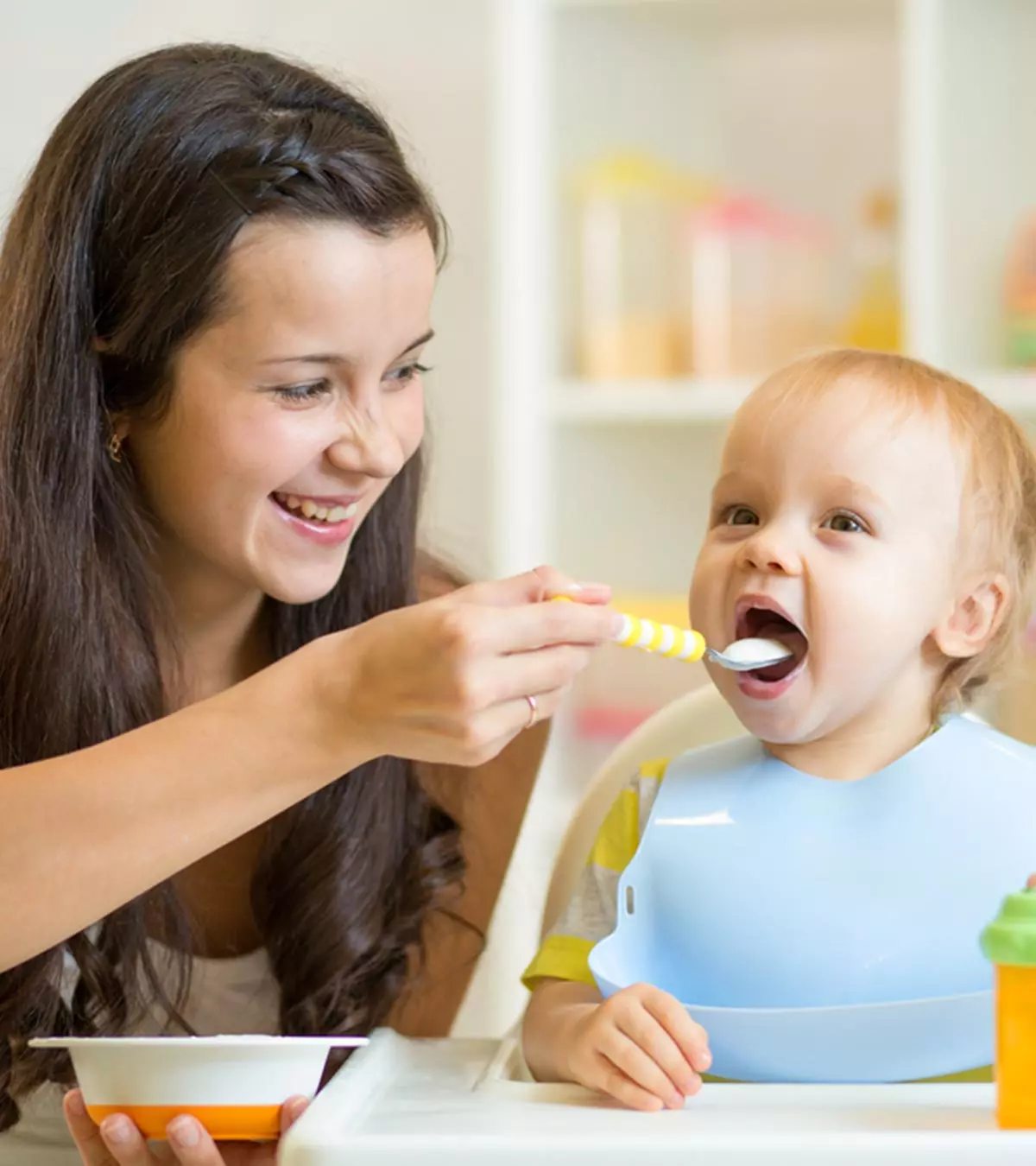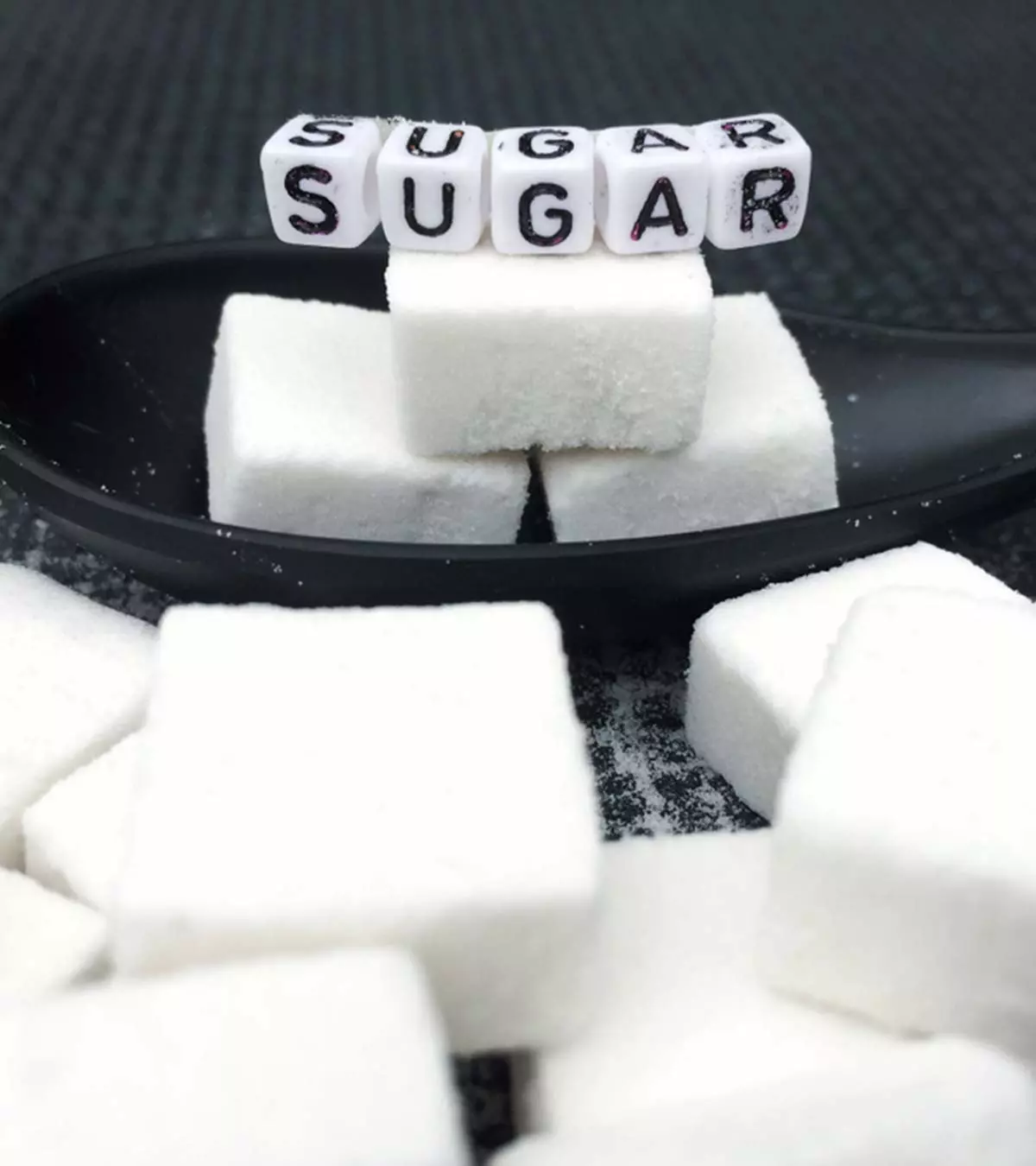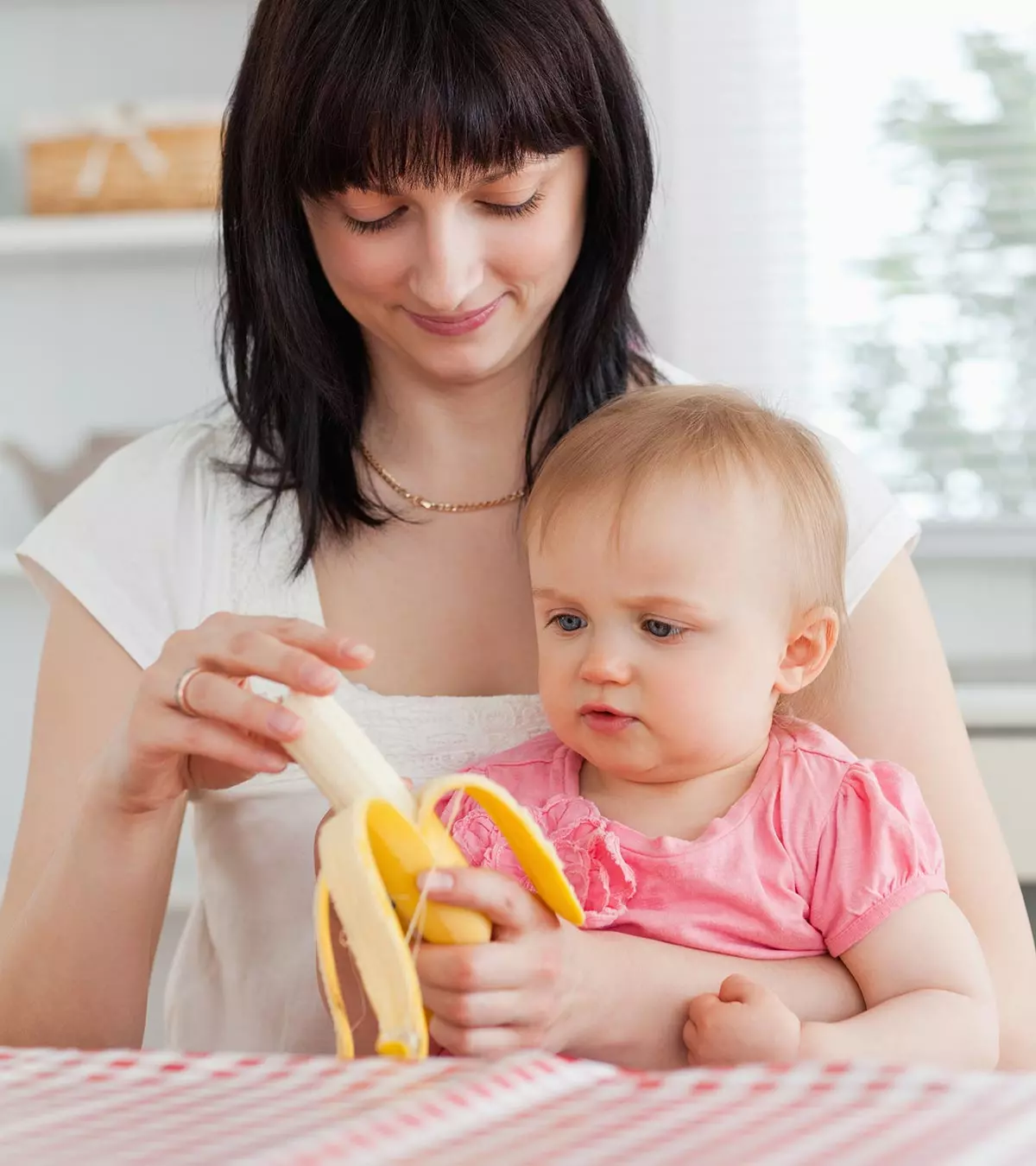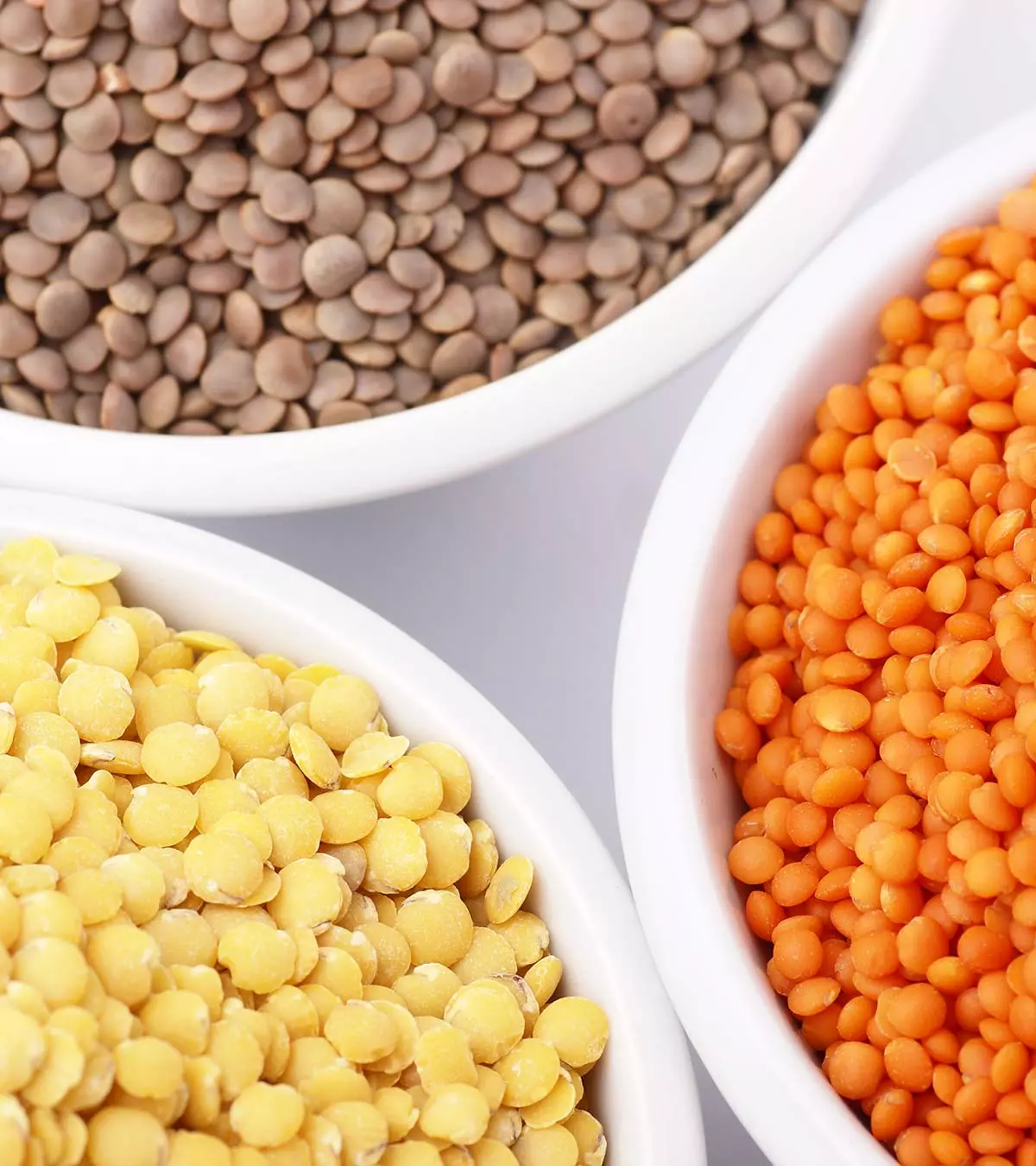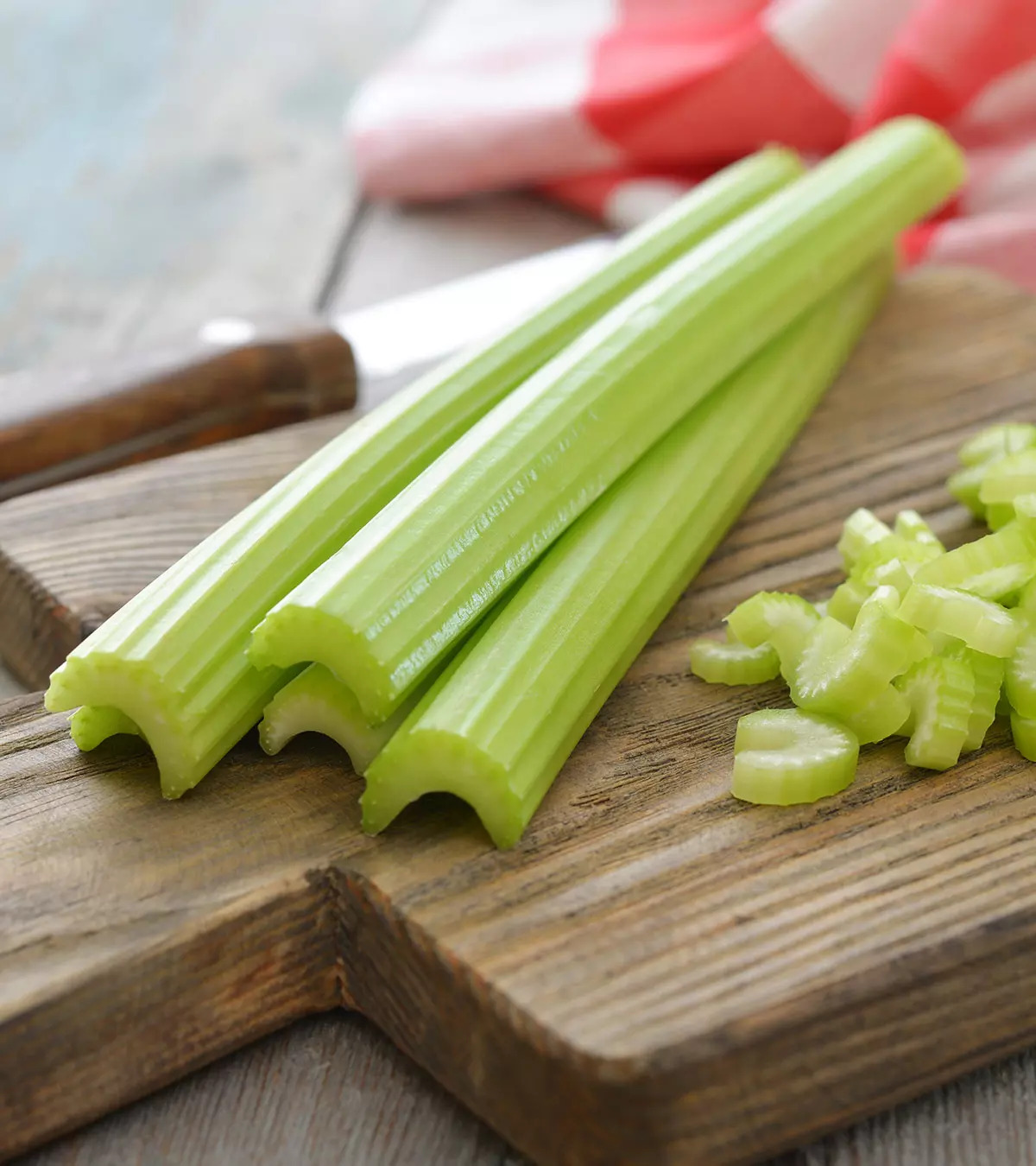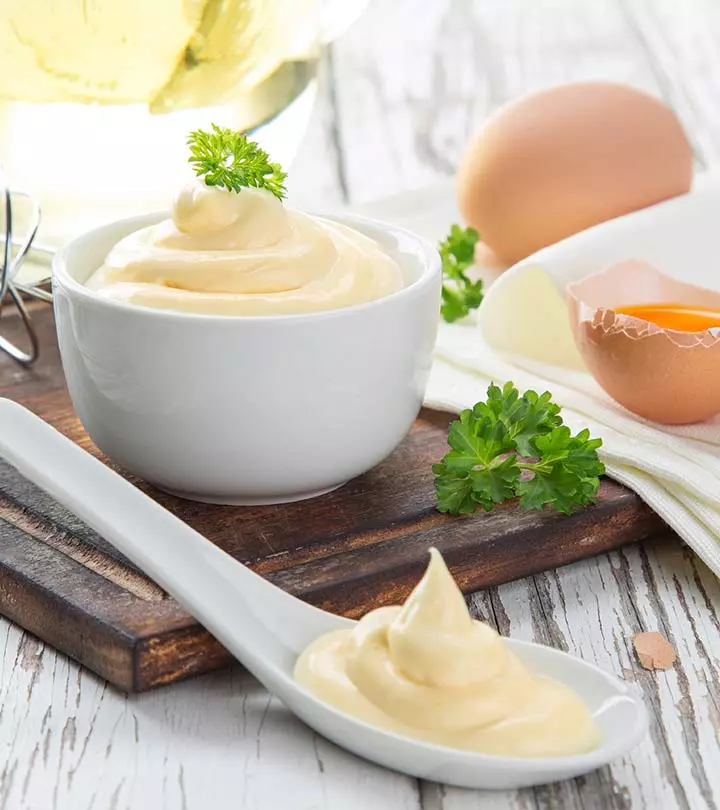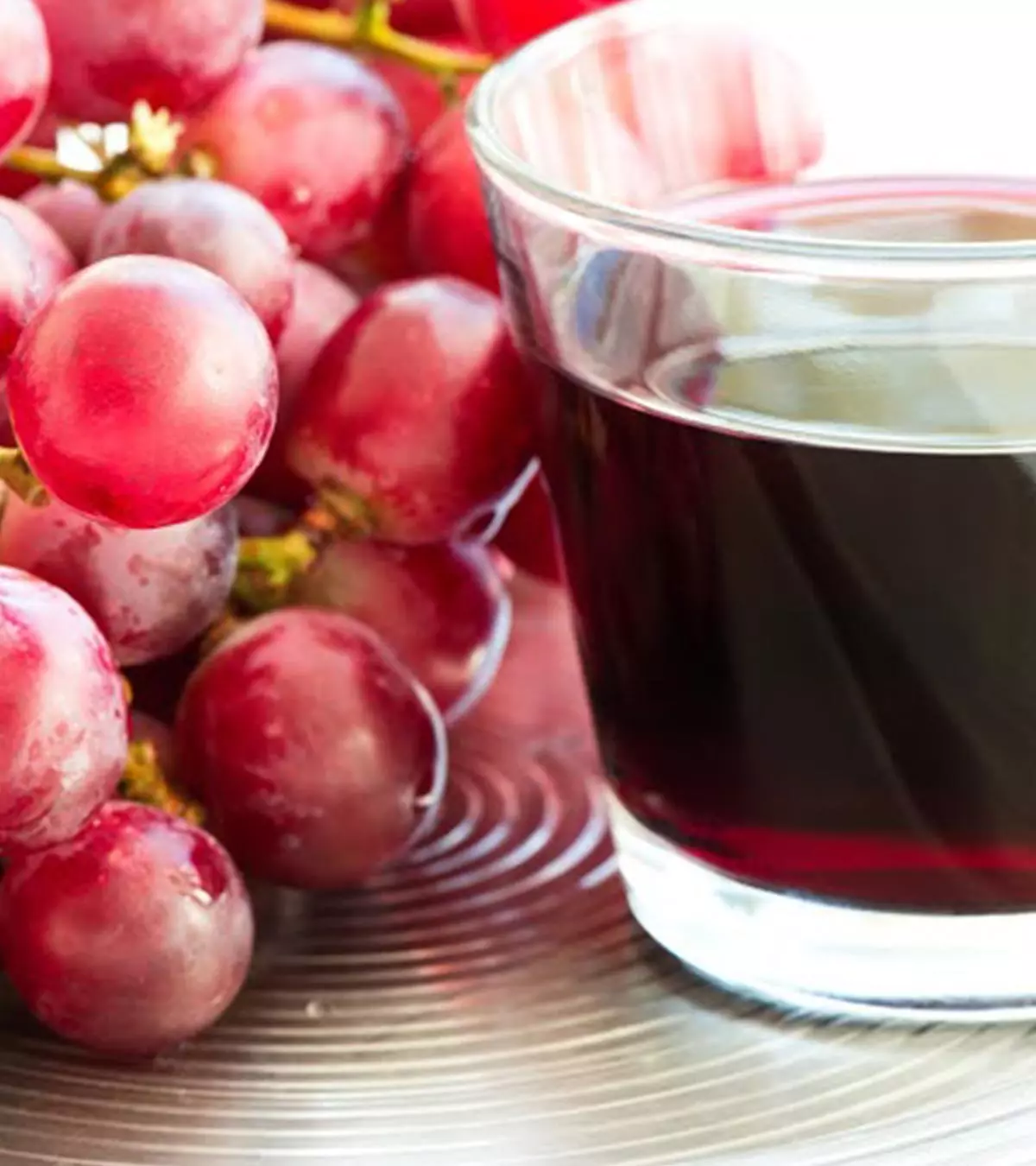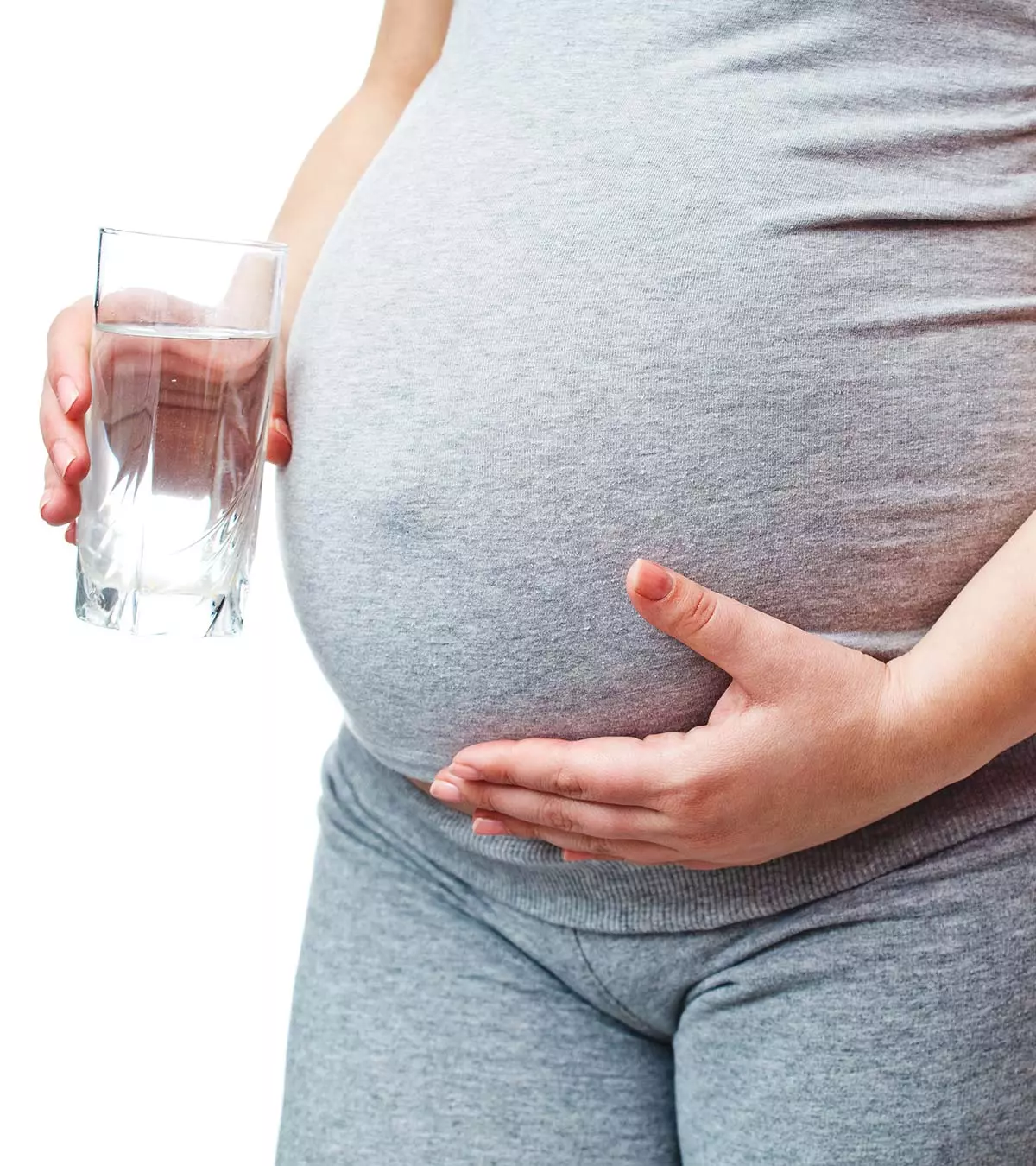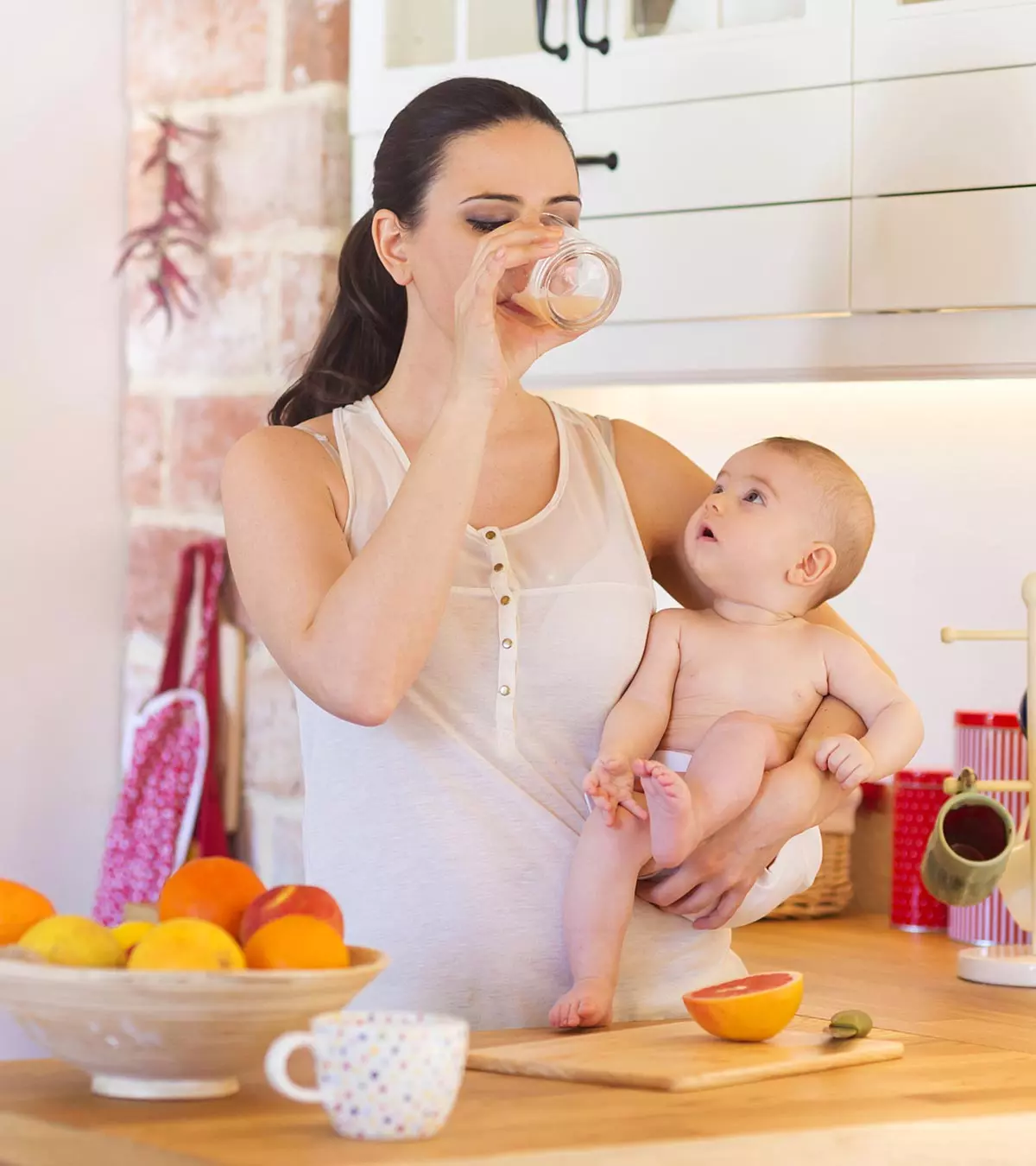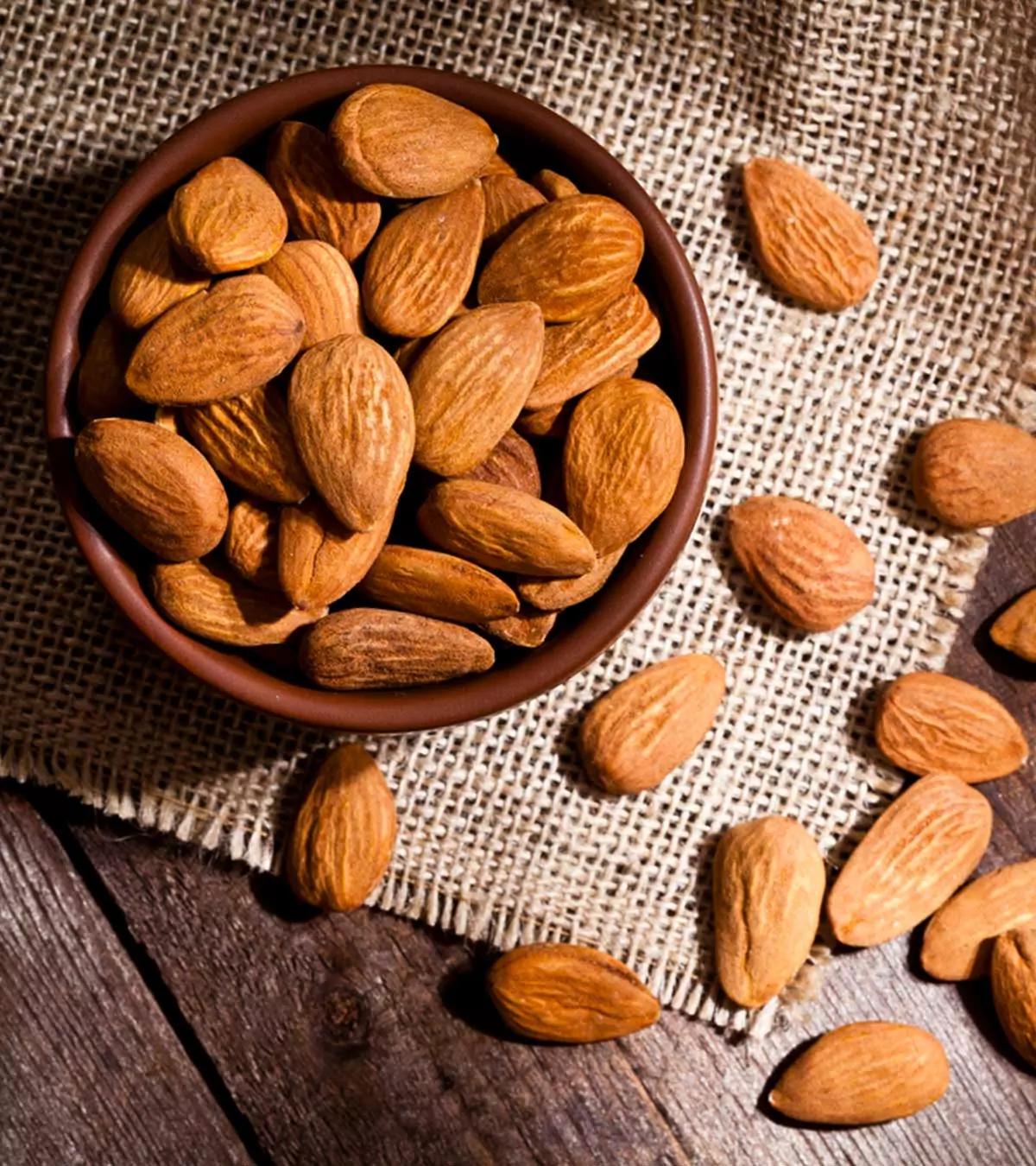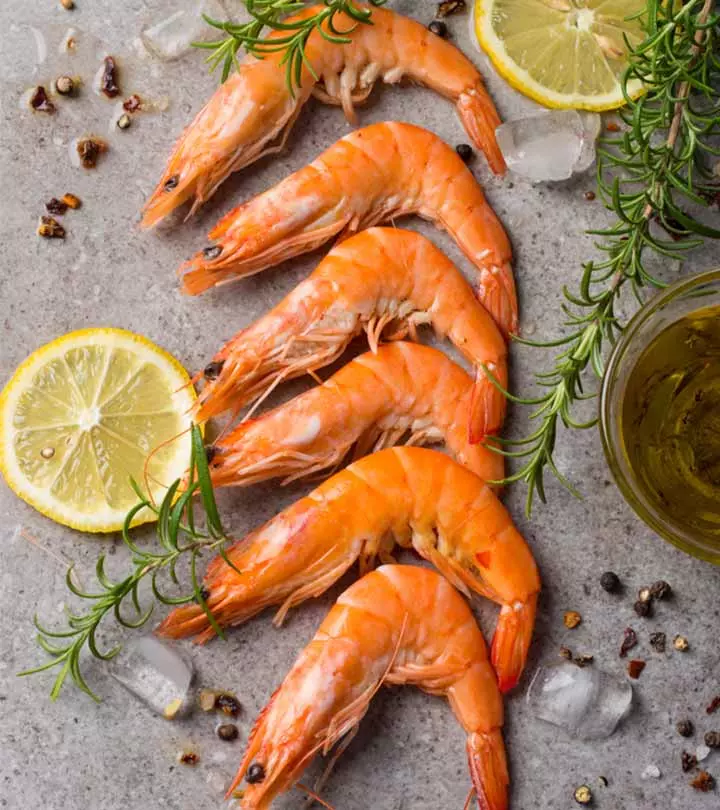
Image: Shutterstock
Shrimp is a soft-textured shellfish rich in vital nutrients, such as lean protein, selenium, and several B vitamins, such as vitamin B12
. It also contains heart-healthy omega-3 fatty acids, which can benefit a pregnant woman and her unborn baby. But while shrimp is generally considered a healthy choice for seafood lovers, you might want to know — can pregnant women eat shrimp? Knowing this is crucial as certain types of fish and shellfish may contain high amounts of mercury.
If you are looking for an answer to your question ‘can I eat shrimp while pregnant?’ then read on as we tell you about the safety, possible health benefits, and necessary precautions you should follow.
Key Pointers
- Shrimp contains high-quality lean protein and essential nutrients such as vitamin D, omega-3 fatty acids, and zinc for pregnant women.
- You may clean your hands with soap and water, clean and devein the shrimp before cooking, and ensure its cooked as per recommendations.
- Preventing preterm labor and reducing the risks of postpartum depression are a few benefits of consuming shrimp.
Safety Of Shrimp In Pregnancy

Image: Shutterstock
According to the American Pregnancy Association (APA), shrimp is a low-mercury seafood rich in protein and low in saturated fats, making it a healthy addition to the maternal diet (1). So, can you eat shrimp while pregnant? The answer is yes. Pregnant women should consume well-cooked shrimp since raw or undercooked seafood can contain harmful pathogens that cause foodborne illnesses and have a negative impact on maternal health and the fetus.
The US Food and Drug Administration (US FDA) advises pregnant and breastfeeding women to consume 8-12 ounces per week of a variety of low-mercury seafood (2). Consuming seafood can provide you with vital nutrients that promote your health and support the baby’s growth and development.
Besides shrimp, some other types of seafood that are low in mercury and you can safely consume when pregnant are fish, such as pollack, catfish, salmon, trout, canned light tuna, cod, and tilapia.
 Quick tip
Quick tipNutritional Value Of Shrimp
Shrimp is a nutritious shellfish that you can prepare in several ways. Here’s the presentation of approximate amounts of different nutrients a pregnant woman aged between 19 and 30 years can get by consuming three ounces (85g) of cooked shrimp (3) (4).
| Nutrient | Amount | RDA |
|---|---|---|
| Water | 63.2g | – |
| Energy | 84.2kcal | – |
| Protein | 20.4g | – |
| Total lipid (fat) | 0.238g | – |
| Calcium, Ca | 59.5mg | 1000mg |
| Iron, Fe | 0.433mg | 27mg |
| Magnesium, Mg | 33.2mg | 350mg |
| Phosphorus, P | 201mg | 700mg |
| Potassium, K | 220mg | 2900mg |
| Sodium, Na | 94.4mg | 2300mg |
| Zinc, Zn | 1.39mg | 11mg |
| Cholesterol | 161mg | – |
Source: USDA and Dietary Guidelines for Americans, 2020-2025
Possible Health Benefits Of Eating Shrimp During Pregnancy

Image: Shutterstock
Shrimp contains significant amounts of high-quality protein and other nutrients, such as iodine, magnesium, zinc, and calcium. They also contain omega-3 fatty acids and some iron. Pregnant women need these nutrients for the healthy progression of pregnancy and proper growth and development of the babies.
For instance, consuming sufficient omega-3 fatty acids during pregnancy can provide optimum nutrition and aid the baby’s eye and brain development (5). In addition, it can prevent preterm labor and delivery and lower the risk of preeclampsia. Furthermore, it may prevent allergies in infants and reduce the risk of postpartum depression (6). Iron in shrimp can also contribute to your increased iron needs and prevent anemia.
Tips To Cook Shrimp At Home
Below are some simple steps you can follow to safely cook shrimp at home and mitigate the risk of foodborne infections.
- Clean your hands with warm water and soap for at least 20 seconds. Use clean utensils and kitchen essentials, such as knives, to prevent cross-contamination.
- Clean the shrimp under cold running water before shelling or deveining the shrimp. Then, quickly peel off the skin and devein them using a sharp knife. It’s vital so that they don’t get warm. Keep the shrimp in a bowl of ice whenever possible.
- Dispose of shells and veins as soon as possible so that they don’t contaminate clean shrimp at any point while preparing the shrimps (7).

Image: Shutterstock
- Thoroughly cook shrimp and check its internal temperature using a food thermometer while preparing seafood at home. Experts recommend cooking seafood to an internal temperature of 145°F (63°C).
You may boil, steam, fry, bake, and grill shrimp. To ensure shrimp is cooked well, monitor its color. The US FDA advises cooking shrimp until they develop an opaque (milky white) color (8). Also, as the shrimp cooks through, its flesh becomes firmer and clearer (9).
 Point to consider
Point to considerPrecautions To Take When Eating Shrimp During Pregnancy
Here are certain precautionary measures you should follow to ensure the safe consumption of shrimp during pregnancy.
- Buy seafood from a reputable supplier or store. Experts advise buying refrigerated seafood or the one displayed on a thick bed of fresh ice, preferably under some cover.
- Check the skin color and odor of shrimp. Fresh shrimp has a clear, pearl-like flesh and has little or no odor.
- Ask for an ice bag to keep the shrimp chilled while buying shrimp from the counter. If possible, keep a cooler with you to store shrimp until you reach home and refrigerate them. Doing so is crucial as bacteria thrive at temperatures above 40°F (4°C).
- While buying frozen shrimp, look for the one packed in close-fitting, moisture-proof packages. Pick packages that have no damage and no melted ice leaking. Double-check that the shrimp has no signs of freezer burn, such as discoloration or drying on the surface, and has no objectionable odor.
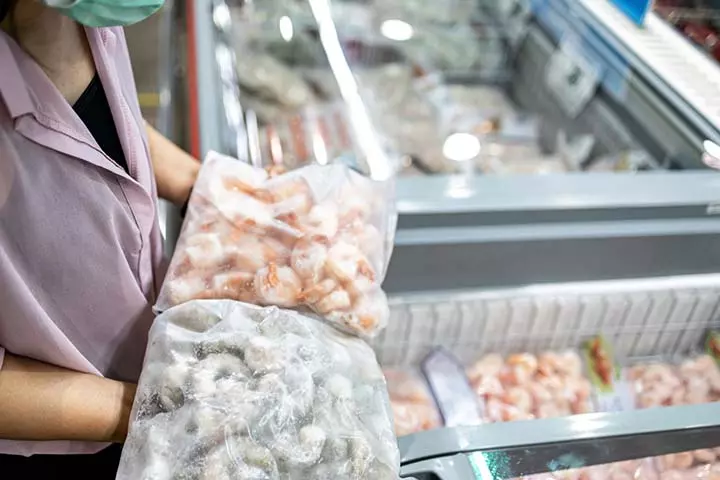
Image: Shutterstock
- Don’t eat raw or undercooked seafood, such as shrimp, sushi, sashimi, ceviche, and oysters during pregnancy. They may contain harmful pathogens, such as listeria and salmonella. These microbes can cause food poisoning, adversely affecting your and your baby’s health. According to the Centers for Disease Control and Prevention (CDC), pregnant women are ten times more likely to contract listeria infection than other people.
- Ensure the safety of seafood while eating out in a restaurant or hotel. Enquire about the dish and its ingredients. Check if the shrimp used in a dish is well-cooked or raw.
 Be watchful
Be watchfulFrequently Asked Questions
1. Why is shrimp bad during pregnancy?
Shrimp is not bad for pregnant women. It is, in fact, one of the seafood with low mercury content that is considered healthy during pregnancy.
2. Can shrimp cause birth defects?
Well-cooked shrimp is considered healthy during pregnancy when taken in the recommended amount (10). Hence, it is not believed to cause any congenital disabilities.
Expectant mothers often wonder if eating shrimp during pregnancy causes any harm to their unborn baby. However, shrimp is safe to consume during pregnancy. Moreover, this seafood is high in omega-3 fatty acids and protein and low in mercury, making it an ideal source of nutrition for pregnant women. If you are consuming locally sourced seafood, make sure to check your local fish advisories. It is also important to check the label for mercury levels and consume only well-cooked shrimp to avoid any pathogenic diseases during pregnancy.
Infographic: How To Select Shrimp To Ensure Its Safety
Selecting good shrimp is essential to ensuring its safety for pregnant women. Our infographic lists simple tips that can help you make a good choice. Read through them and use them the next time you go out to buy shrimp. Illustration: Momjunction Design Team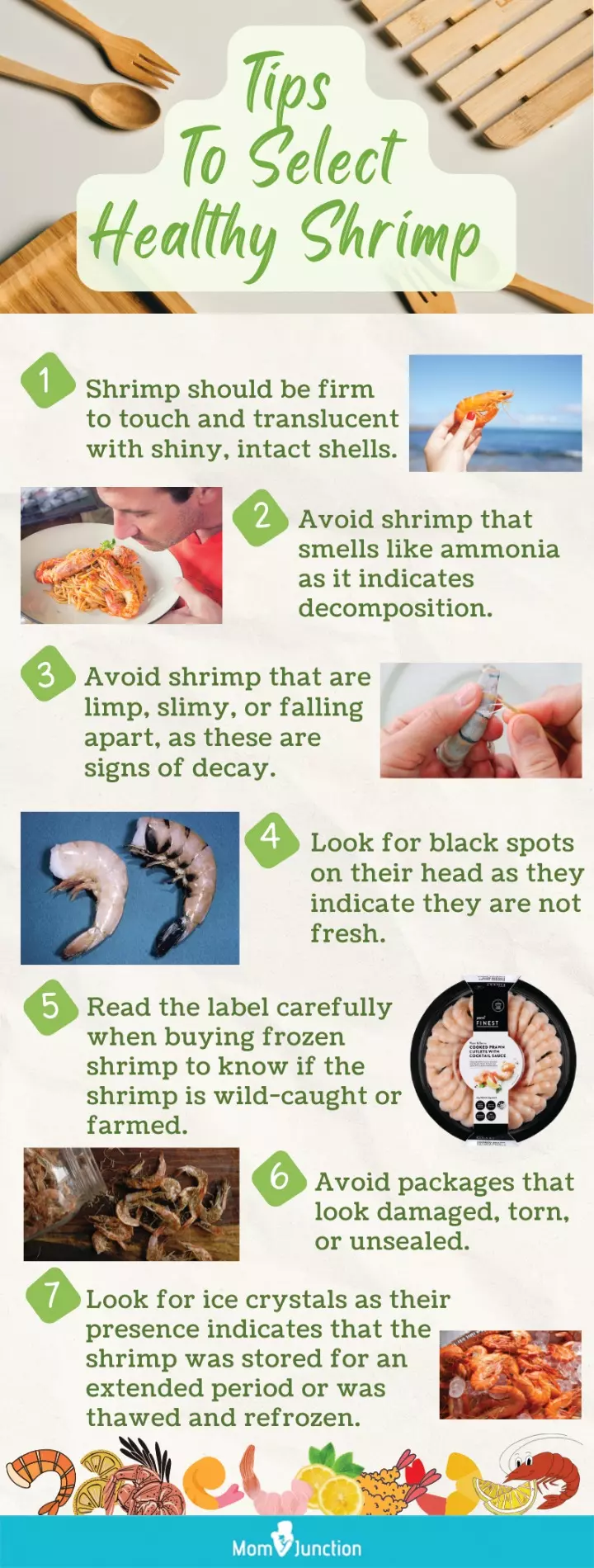
Illustration: Eating Shrimp During Pregnancy: Safety Benefits & Precautions

Image: Stable Diffusion/MomJunction Design Team
References
- Eating Shrimp During Pregnancy.
https://americanpregnancy.org/healthy-pregnancy/is-it-safe/eating-shrimp-pregnancy/ - Advice about Eating Fish.
https://www.fda.gov/food/consumers/advice-about-eating-fish - Crustaceans shrimp cooked; FDC ID: 175180.
https://fdc.nal.usda.gov/fdc-app.html#/food-details/175180/nutrients - Dietary Guidelines for Americans 2020-2025.
https://www.dietaryguidelines.gov/sites/default/files/2020-12/Dietary_Guidelines_for_Americans_2020-2025.pdf - Omega-3 Fatty Acids and Pregnancy.
https://www.ncbi.nlm.nih.gov/pmc/articles/PMC3046737/ - Omega-3 Fish Oil and Pregnancy.
https://americanpregnancy.org/healthy-pregnancy/pregnancy-health-wellness/omega-3-fish-oil-and-pregnancy/ - Special Report: Shrimp Safety.
https://www.consumerreports.org/cro/magazine/2015/06/safe-shrimp-prep/index.htm - Meat Poultry & Seafood from Food Safety for Moms to Be.
https://www.fda.gov/food/people-risk-foodborne-illness/meat-poultry-seafood-food-safety-moms-be - Selecting and Serving Fresh and Frozen Seafood Safely.
https://www.fda.gov/food/buy-store-serve-safe-food/selecting-and-serving-fresh-and-frozen-seafood-safely - Eating shrimp during pregnancy.
https://americanpregnancy.org/healthy-pregnancy/is-it-safe/eating-shrimp-pregnancy/
Community Experiences
Join the conversation and become a part of our nurturing community! Share your stories, experiences, and insights to connect with fellow parents.
Read full bio of Jennifer House
Read full bio of Swati Patwal
Read full bio of Rebecca Malachi
Read full bio of Aneesha Amonz












